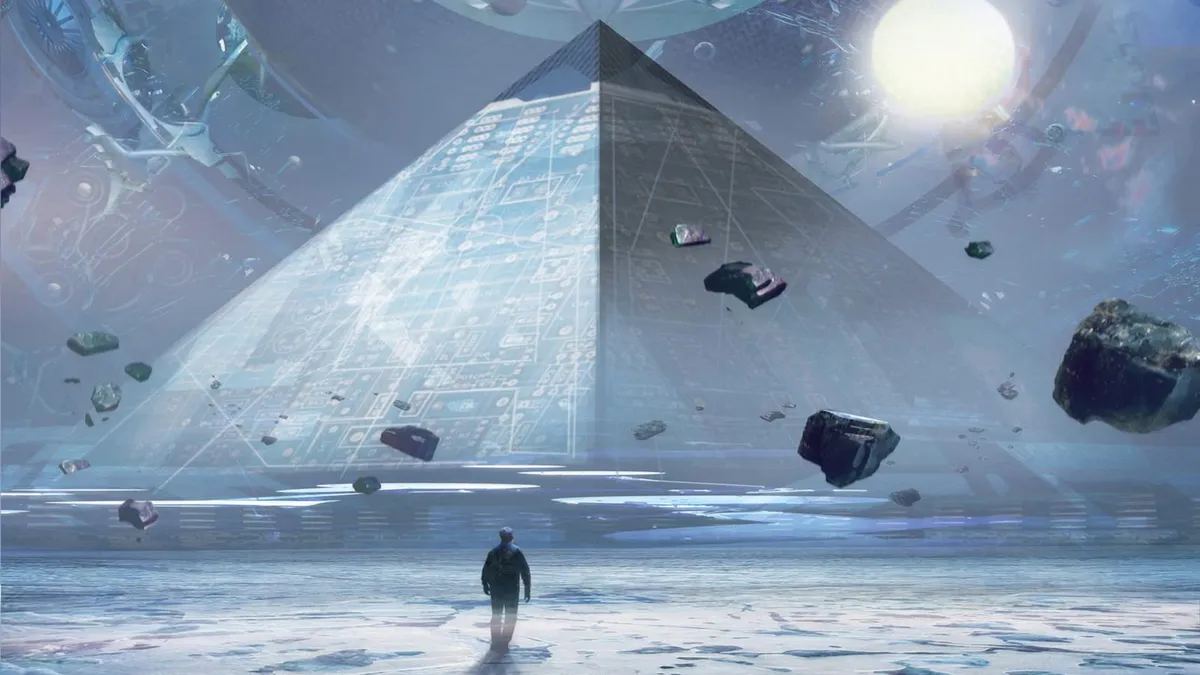A Universe Beyond: A Review of The Three-Body Problem by Cixin Liu
Cixin Liu’s The Three-Body Problem, the first installment of the Remembrance of Earth’s Past trilogy, isn’t just a science fiction novel; it’s a mind-bending exploration of humanity’s place in a vast and potentially hostile universe. Translated from Chinese, the book offers a unique perspective on first contact, weaving together hard science, philosophical ponderings, and a dash of political intrigue. While not without its flaws, The Three-Body Problem is a thought-provoking and often awe-inspiring journey that will leave a lasting impression on any reader.
The narrative unfolds across three distinct timelines. The Cultural Revolution in China forms the backdrop for the first, where Ye Wenjie, a disillusioned astrophysicist, witnesses a brutal event that forever alters her perception of humanity. This event sets the stage for the novel’s central conflict: the arrival of the Trisolarans, a civilization from a chaotic three-sun system facing imminent destruction. In the present day, Wang Miao, a nanomaterials researcher, becomes entangled in a series of bizarre occurrences that lead him to a clandestine organization tasked with preparing for the Trisolaran invasion. Finally, the far future reveals the consequences of humanity’s desperate struggle for survival against an alien civilization with a radically different understanding of morality and existence.
Liu’s greatest strength lies in his ability to seamlessly blend scientific concepts with imaginative storytelling. The chaotic nature of a three-body system, the mind-bending possibilities of virtual reality, and the sheer vastness of the cosmos are all woven into the narrative without overwhelming the reader. The Trisolaran world, with its erratic climate and bizarre evolutionary adaptations, feels both alien and strangely plausible. This grounding in scientific principles lends an air of authenticity to the fantastical elements, making the reader truly believe in the possibility of such an encounter.
However, the characters often take a backseat to the grand ideas at play. While Wang Miao serves as a capable protagonist, navigating the increasingly strange events around him, his emotional depth remains somewhat shallow. The supporting cast, though crucial to the plot, are largely defined by their roles within the larger narrative rather than their individual personalities. This focus on the “big picture” can leave the reader yearning for a deeper connection with the characters’ motivations and struggles.
The book’s central philosophical concept, the “Dark Forest” theory, is perhaps its most impactful element. This theory posits that in a vast and potentially hostile universe, civilizations will prioritize self-preservation above all else, leading to a universe of suspicion and violence. This bleak outlook serves as the driving force behind the Trisolarans’ actions, forcing humanity to confront the terrifying reality of their situation. The Dark Forest theory sparks profound questions about the nature of intelligence, morality, and the very possibility of peaceful coexistence in the cosmos.
Despite its strengths, The Three-Body Problem isn’t without flaws. The pacing can be uneven at times, with long stretches of scientific exposition occasionally bogging down the narrative. Additionally, the cultural context of the Cultural Revolution might feel unfamiliar to some Western readers, requiring a degree of historical understanding to fully appreciate its impact on the characters’ motivations.
However, these shortcomings are easily overshadowed by the sheer scope and ambition of the novel. The Three-Body Problem is a thought-provoking journey that forces the reader to confront the vastness and potential dangers of the universe. It is a testament to Liu’s masterful storytelling that he can weave together scientific concepts, philosophical ponderings, and political intrigue into a narrative that is both intellectually stimulating and emotionally resonant. While the characters may not be the most deeply developed, the ideas presented are sure to stay with the reader long after the final page is turned.
Ultimately, The Three-Body Problem is a must-read for anyone seeking a truly mind-bending science fiction experience. It is a book that will challenge your preconceptions about humanity’s place in the universe and leave you pondering the profound implications of first contact with an alien civilization.














Post Comment